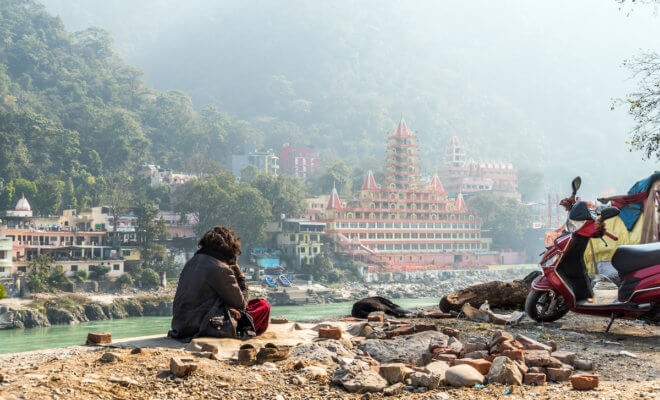Life
India Among Bottom 15 in Oxfam Inequality Survey

A poor man on the banks of the Ganges river.
Photo: Bigstock
According to the study, Indian Government spending on health, education, and social protection is woefully low.
India has been ranked among the bottom 15 countries in a new worldwide index by British charity Oxfam on the commitment to reduce inequality in its population.
The index, ‘Commitment to Reducing Inequality (CRI) Index,’ which was released on Oct. 9, ranks India at 147th place among 157 countries surveyed, calling the country’s commitment to reducing inequality as “a very worrying situation” considering the fact that the country has 1.3 billion people, many of whom live in extreme poverty.
According to “The Commitment to Reducing Inequality Index 2018,” in 2015, leaders of 193 countries had pledged to reduce inequality as part of Sustainable Development Goals (SDGs) noting that without reducing inequality, eliminating poverty will be impossible.
The second edition of the annual index shows that countries such as South Korea, Namibia, and Uruguay are taking strong steps to reduce inequality in resources among the population. India and Nigeria, on the other hand, are lagging far behind in bringing in the necessary reforms to resolve inequality gap among the population.
“If India were to reduce inequality by 10 Commitment to Reducing Inequality Index 2018 a third, more than 170 million people would no longer be poor. Government spending on health, education and social protection is woefully low and often subsidizes the private sector. Civil society has consistently campaigned for increased spending. The tax structure looks reasonably progressive on paper, but in practice much of the progressive taxation, like that on the incomes of the richest, is not collected,” Oxfam said about India.
India, which is now the world’s fastest growing large economy, fared poorly on labor rights and respect for women at the workplace. According to the study, working women are undermined and victims of domestic violence in India. Citing a report from Indian National Family Health Survey, the study said that in India, 6% of women in the 15–49 age group have experienced spousal sexual violence in their lifetime, with 5% experiencing this type of violence in the past 12 months alone. This has led to new indicators on the quality of laws against sexual harassment and rape. “The overall labor force is employed in the agricultural and informal sectors, which lack union organization and enforcement of gender rights,” the study said.
The index measures the Governments’ attempt to eradicate poverty based on the measures of fiscal policies (public spending and taxes) and labor market policies. The CRI index builds on three pillars: progressivity of spending, progressivity of tax, and progressivity of labor policy.
Denmark topped this year’s global index for its efforts in closing inequality gap.
“However, recent Danish governments have focused on reversing all three of these to some extent, with a view to liberalizing the economy, and recent research reveals that the reforms of the past 15 years have led to a rapid increase in inequality of nearly 20 percent between 2005 and 2015,” the study states.
According to the index, among the developed countries, the U.S. has lagged way behind in eradicating poverty. The index praised Japan for increasing minimum wages and tax collection. The country ranked 11th in the index.

1 Comment
You must be logged in to post a comment Login